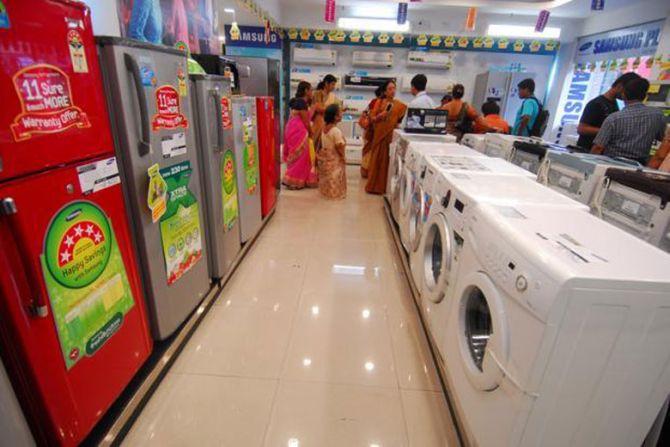The added burden on manufacturers for recycling e-waste is expected to impact their margins, which may further lead them towards hiking prices of other items.

After a year of offering discounts and price cuts, companies are firming up plans to hike prices of consumer durables as 2020 sets in.
Refrigerators are set to be costlier by up to 8 per cent - the first price rise for any consumer durable category since 2018 - despite a fall in costs of crucial raw material.
Refrigerator prices are bound to rise across brands as new energy efficiency norms kick in next year.
According to Kamal Nandi, president of the Consumer Electronics and Appliances Manufacturers Association (CEAMA) and vice-president of Godrej & Boyce, price hikes are inevitable as most manufacturers are already operating on a thin margin.
“It is estimated that prices may go up by Rs 500 for same level of energy rating from next year,” he said.
Sunil D’Souza, managing director, Whirlpool India, said the firm is yet to finalise the extent of price hike for separate models.
"But yes, prices are bound to increase,” he said.
The new norms may also make 5-star refrigerators obsolete. Estimates say the norms may lead to a Rs 6,000 rise in cost, as additional components like vacuum panels will be required to attain such level of energy efficiency.
This will lead to a steep price hike, making 5-star refrigerators unviable in the market, said Nandi.
Moreover, the added burden on manufacturers for recycling e-waste is expected to impact their margins, which may further lead them towards hiking prices of other items.
Under the e-waste management rules, firms need to collect and recycle 30 per cent of what they sold a decade ago by 2019-20, which will continue to go up by 10 percentage points every year till 2023.
From April 2020, for example, manufacturers would be required to collect and recycle 40 per cent of what they sold a decade ago.
Pradeep Bakshi, managing director and CEO, Voltas, said that the absence of an efficient collection mechanism will affect manufacturers adversely.
With consumers unwilling to return used electronics and durable items directly to manufacturers, most firms are forced to buy them from producer responsibility organisations.
These organisations have the task of collecting scrap electronics and giving them to the companies concerned.
This is putting additional cost burden on them, companies said.
Benign raw material prices and a stable rupee-dollar exchange rate have benefitted the sector in 2019 - after two years of disruption.
In 2017 and 2018, had seen three rounds of price hikes after the introduction of the Goods and Services Tax (GST) regime, the rise in prices of commodities such as copper, and a fluctuating currency exchange rate.
The manufacturers, meanwhile, suffered, as volume uptake of items like air conditioners dwindled.
This year, however, items like television sets witnessed price cuts by up to 3 per cent, as the government removed Customs duty on key components such as open cell panels.
According to CEAMA’s estimates, during January-June the market for electronics and appliances grew by 17 per cent, led by the air conditioner category that posted 35 per cent growth by value.
Photograph: PTI Photo











